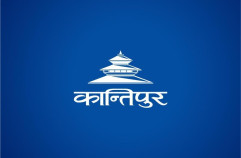Constitution Day: Demand for laws to strengthen the state

We use Google Cloud Translation Services. Google requires we provide the following disclaimer relating to use of this service:
This service may contain translations powered by Google. Google disclaims all warranties related to the translations, expressed or implied, including any warranties of accuracy, reliability, and any implied warranties of merchantability, fitness for a particular purpose, and noninfringement.




The federal government has been urged to hand over the constitutional rights in time to strengthen the provincial structure.

In a program organized by the Wagmati Provincial Government on Thursday in Hetaunda with reference to the Constitution Day, most of the speakers said that there has been negative comments about federalism everywhere lately, and the majority of the speakers pointed out that it is necessary for the federal government to delegate powers to the provinces in time according to the provision in the constitution.
Former Chief Minister of Wagmati Province, Dormani Paudel, said that the Union Government should not delay the transfer of rights when the state government has made most of the laws of the Single Rights List. He said that due to the lack of adjustment of the police in the province, the Federal Civil Service Act, the Federal Education Act, and the Federal Police Act, the provincial structure could not gain momentum.
"For the implementation of the laws made at the union, state and local levels, it is necessary to delegate authority by adopting the principle of coexistence between governments," he said.
Minister of Internal Affairs and Planning of Wagmati Province, Surchandra Lamichhane, claimed that almost laws have been made regarding the single rights given to the province by the constitution.
"Some of the laws in the list of common rights of the union and state, state and local level, union, state and local level are yet to be created," according to him, so far 80 Acts, 14 Ordinances, 41 240 necessary laws have been created including regulations, 3 regulations, 9 guidelines, 66 procedures, 12 standards, 14 orders. 239 provinces have been published in the gazette.
Due to the delay in making the federal law, some issues are not being implemented. Although the union and local level structure is complete, the provincial structure is new. When the backbone of federalism is the regional structure, until the regional structure is strengthened, it is not possible to imagine a developed federal democratic republic of Nepal,' he said.
The Chief Minister of the province, Bahadur Singh Lama, said that the responsibility of moving the country towards economic prosperity with social justice has fallen on the shoulders of the provincial government.
'It is today's basic responsibility to move forward in the direction of achieving the goals set for the prosperity of the nation while carrying out the responsibilities specified by the constitution that the federal government, the state government and the local level must fulfill,' he said. He claimed that the province was established after the promulgation of the constitution of Nepal and has been providing services by creating laws on its own from the state of zero.
Lama established the province He claimed that the people's access to the budget and laws has expanded. "Due to the lack of capacity and access yesterday, plans, complaints and suggestions to return from the gate of Singha Darbar are being addressed by the state government today," he said.
Provincial Chief Deepak Prasad Devkota claimed that positive results will be achieved if the aspects specified by the constitution are implemented. Devkota said that institutionalizing the achievements of a democratic republic is the guidance of the constitution.
 प्रकाशित : आश्विन ३, २०८१ २०:१९
प्रकाशित : आश्विन ३, २०८१ २०:१९

 २३.१२°C काठमाडौं
२३.१२°C काठमाडौं










